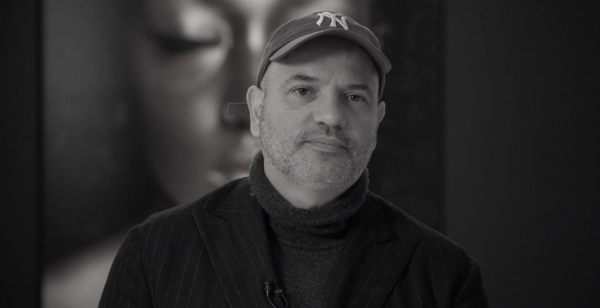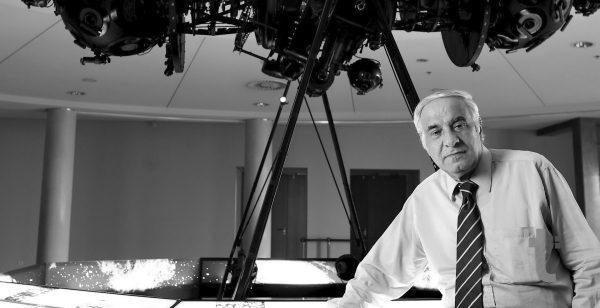High Energy Professor Dimitri Nanopoulos, the world's leading theoretical physicist known through the famous 1976 paper (John Ellis, Mary K. Gaillard, D.V. Nanopoulos), which led CERN to discover the "Particle of God", recounts his scientific career and life: from Charvati to Harvard and to the CERN, the first time he cried when he learned of Feynman's death, the mention of his name by Peter Higgs when he received the Nobel Prize in Physics in 2013, and the anger caused by the media which deals with the insignificant, thus missing great scientific discoveries of humanity. He talks about the decision that changed his course in Science, for which he is still proud of, and about what is coming in the near future as knowledge, around the creation of everything.
From Charvati to Harvard
By Makis Provatas
Translated by Alexandros Theodoropoulos
Stockholm, Sunday, December 10, 2013. Receiving the Nobel Prize in Physics, Peter Higgs said: "… in 1976 Ellis, Gaillard and Nanopoulos urged CERN experimental physicists to look for the Higgs boson as theory had predicted. It was the beginning of a great experimental research, which culminated in the announcement of CERN in July 2012".
As a student at the high school of Zografou, Dimitri Nanopoulos disagreed with the teacher of Religious Studies and decided to change schools. Luckily for him, he chose to go to the 3rd High School for Boys in Ampelokipoi, where he met physicist Vangelis Tsigkounis who empathised with his love for Physics and encouraged him to follow that path. He tells us about his childhood in Charvati, speaks about the first sign at the age of eight about what he would follow in life and the completely special way in which, as a punishment, he finished elementary school alone at a school desk, next to the teacher. He remembers his passion for football, which he was very good at, playing for Panathinaikos youth academy.
Although his family was poor, he decided to leave Greece in order to study the "unified theories" that were his dream. The military junta was the "icing on the cake", he says, in making that decision.
The most critical decision
He tells us that, arriving after days of train travel to Manchester in September 1971, he discovered that, due to poor communication, he was expected to study Nuclear Physics. And then, one night, he made a decision that proved to be the most critical decision of his life.
He went to Sussex, and using a little of the Greek demon, he studied unified theories, graduating in record time.
He remembers his surprise when he was told in Sussex that he had finished his studies and had to leave, which, however, led him to CERN for the first time.
The "particle of God"
He describes the moment he inspired the fabled paper leading to the search for the Higgs boson, the "particle of God", and how it became a reality.
He talks about the period when, while waiting for the experimental confirmation of the Higgs boson from CERN, he dealt with and analysed the human brain which he characterises as a "quantum computer".
He can still recollect with emotion the moment he cried in his life and the thoughts he had when he was informed that Richard Feynman had died.
The Academy of Athens, awards and recognition
He recalls the teenage "relationship" he had with Enrico Fermi's books, and how he felt, years later, when he was awarded the "Enrico Fermi" prize by the Italian Physics Society. He describes the process through which he became an academic, and the amazing coincidence that connects him with Konstantinos Karatheodoris. He considers as a scientifically happy moment the one when Peter Higgs, receiving the Nobel Prize in Physics, at the end of his speech, made a special mention in the paper by John Ellis, Mary K. Gaillard and D.V. Nanopoulos.
The muon and the anger for the media
He tells us the latest results of theoretical Physics around the muon, how important this is as a discovery and how much it angers him that the Greek media ignored it, to deal with "secondary" news.
He states that he will work until the last minute, since "theoretical Physics is my spiritual oxygen", and gives life tips to young children for anything they want to follow in their lives, but especially for theoretical Physics.
Dimitri Nanopoulos, one of the most important living theoretical Physicists, talks to us at ImpacTalk, as a Leader, about almost everything.











































